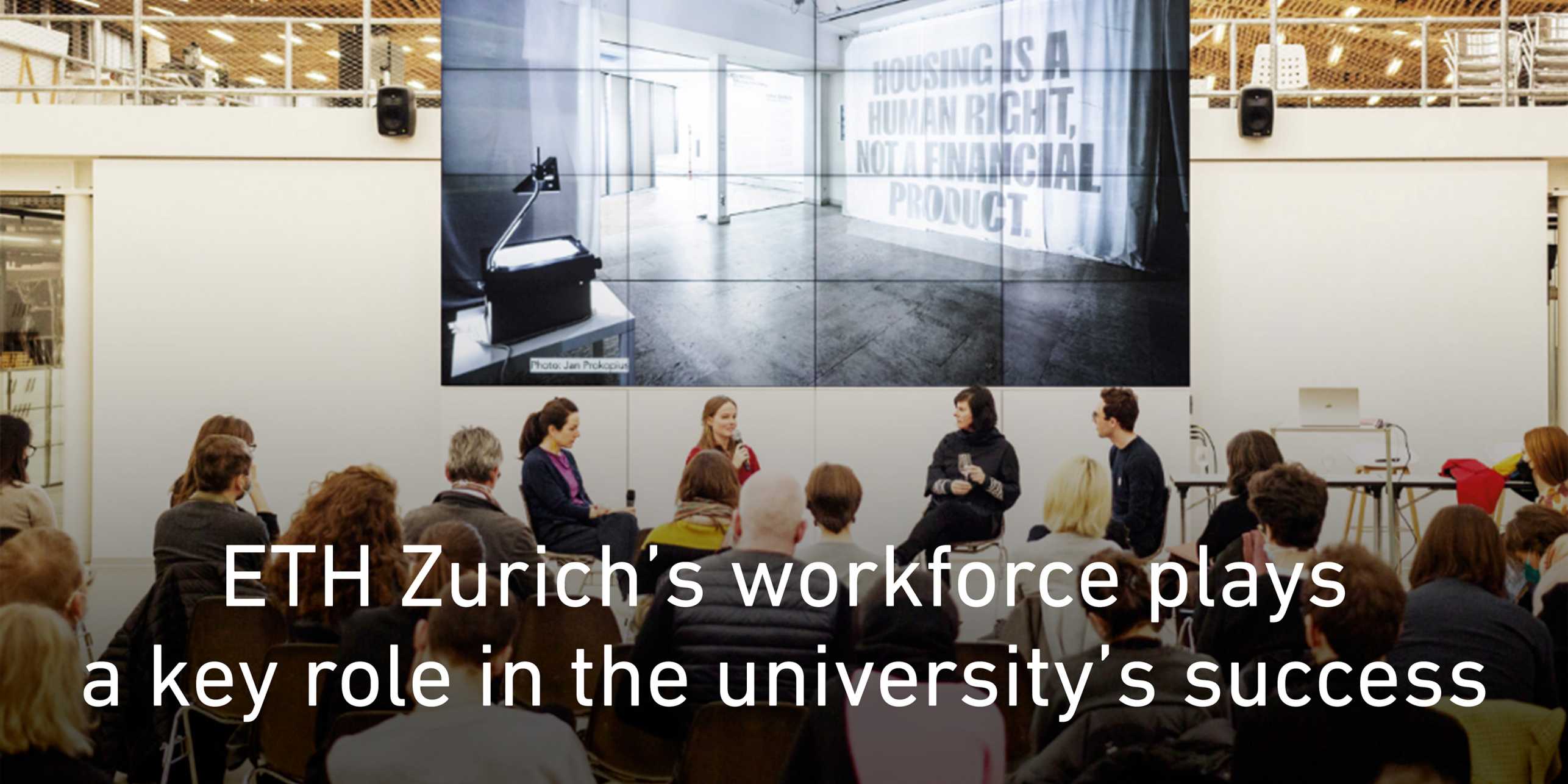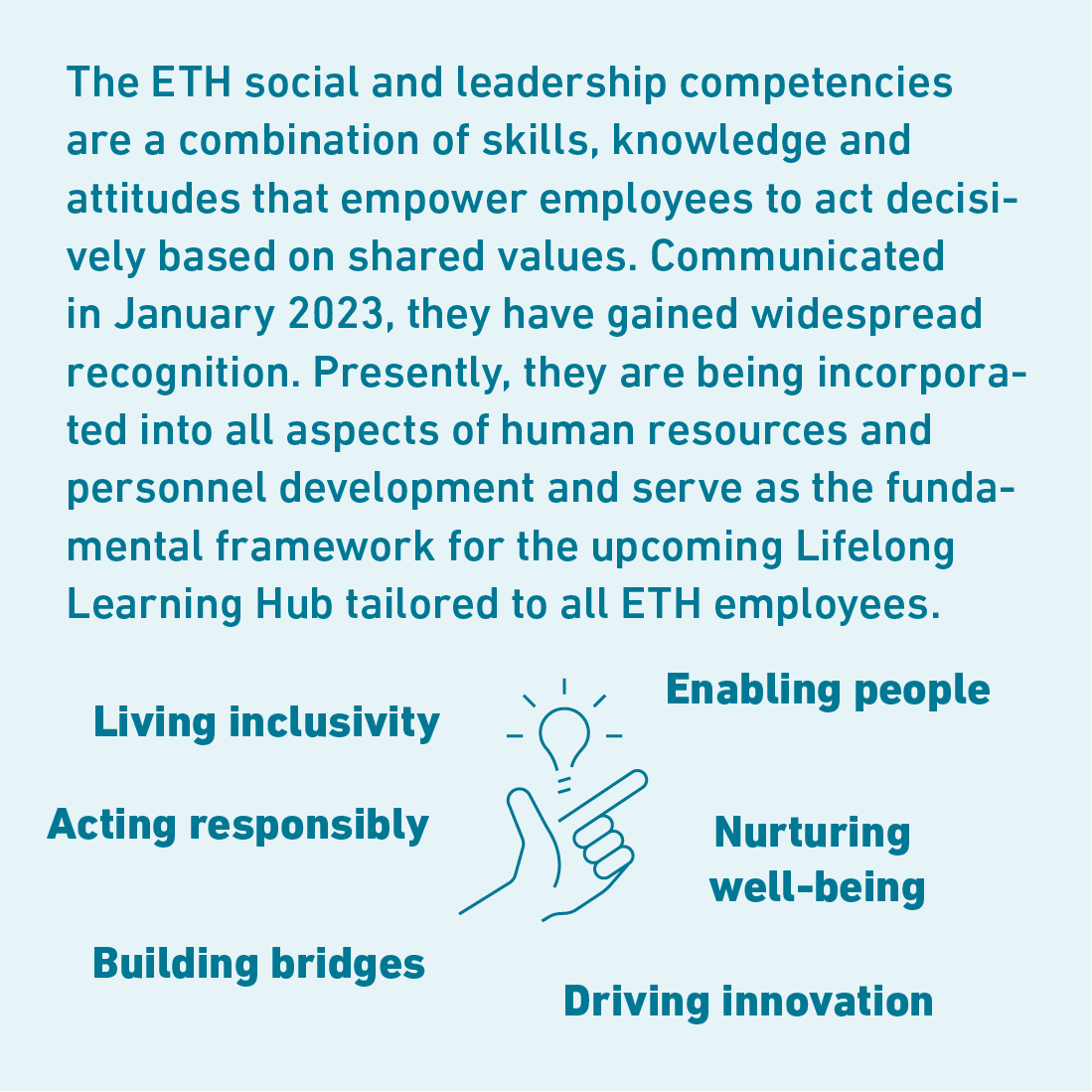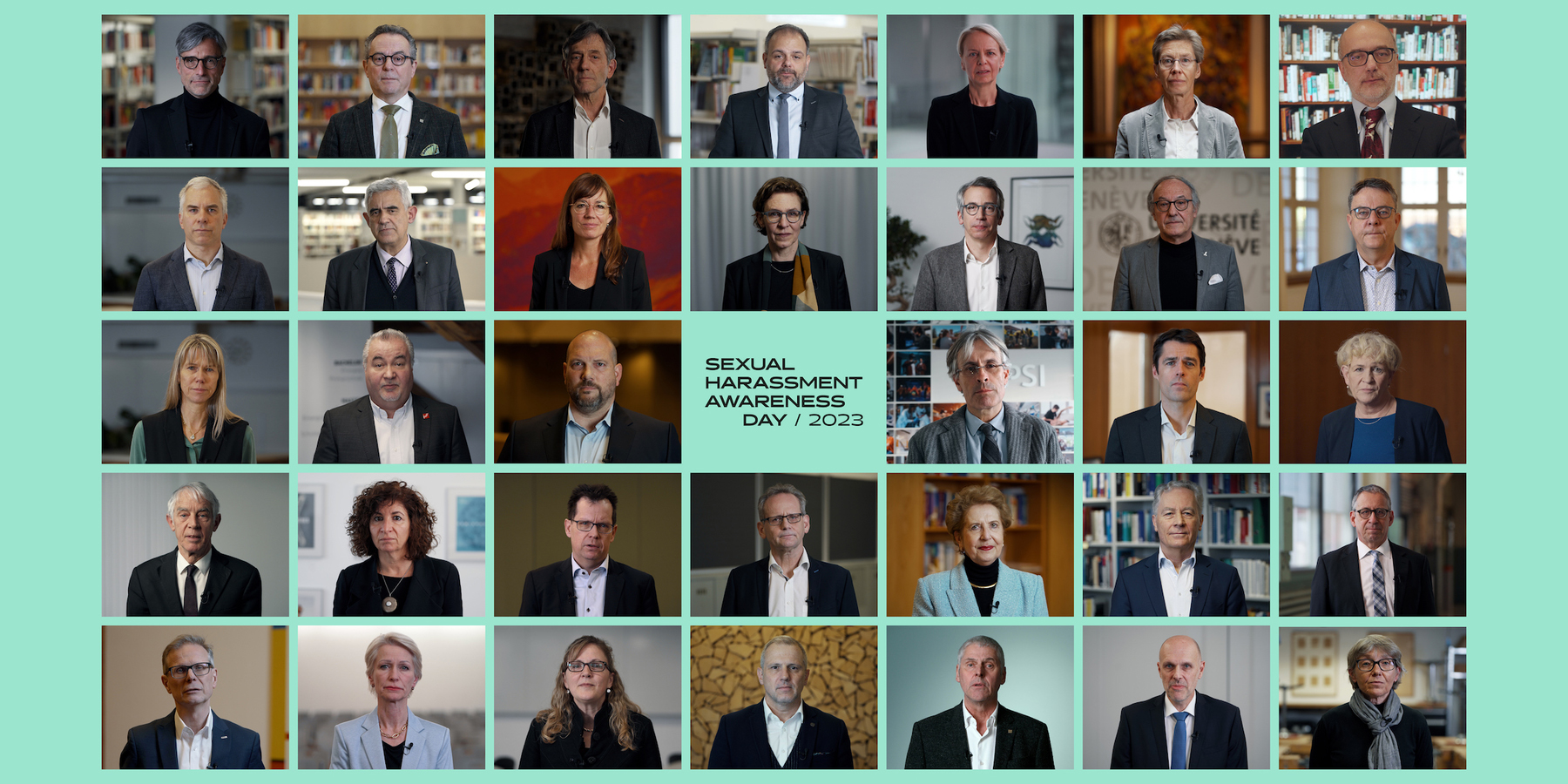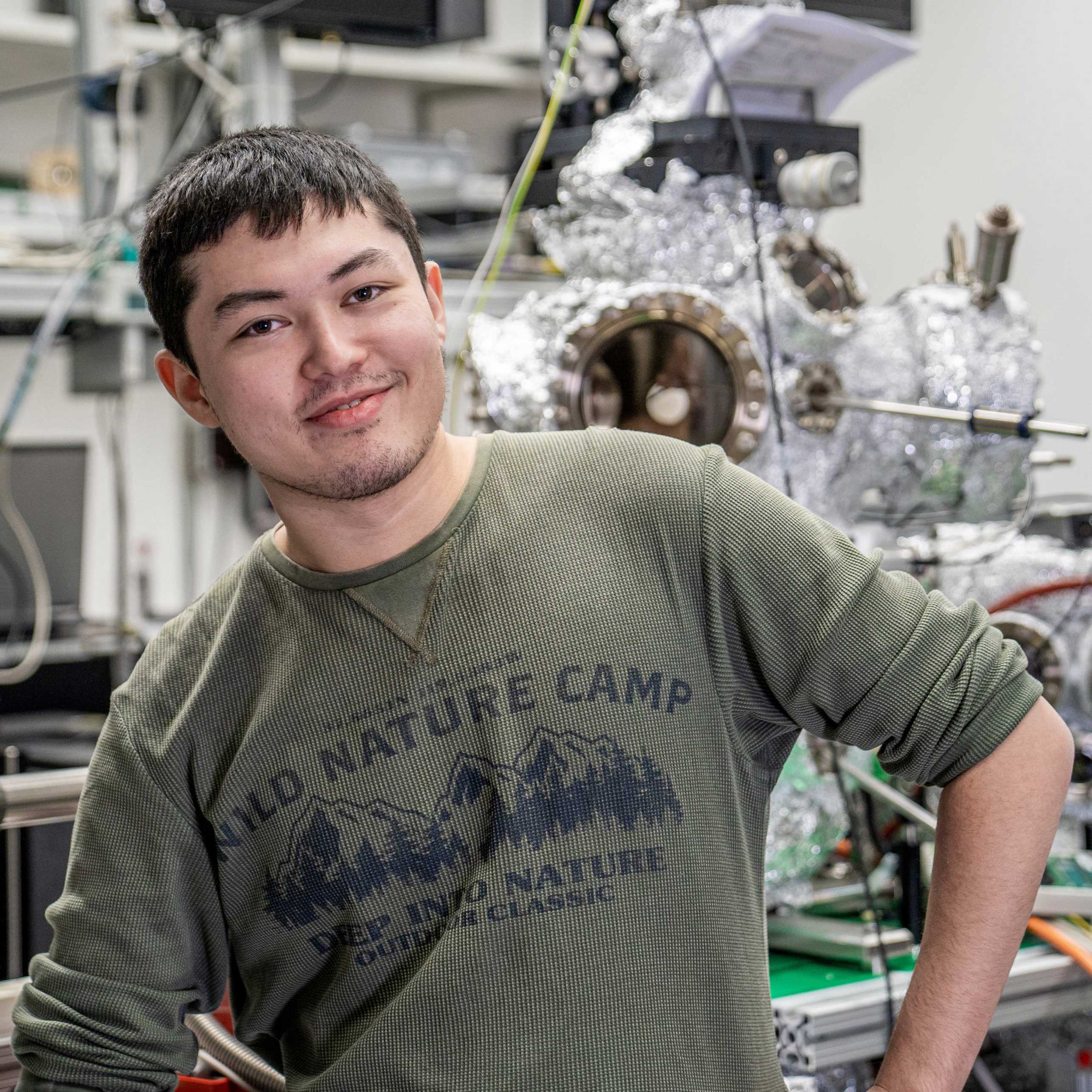Human resources
An environment that allows people to perform their best
ETH Zurich’s international positioning is contingent on its ability to recruit the most talented people from around the globe. With its attractive working environment, culture of mutual respect, state-of-the-art infrastructure and flexible forms of working such as the Future of Work and Lifelong Learning Hub, ETH is successful in attracting highly professional and committed staff, many of whom enrich Switzerland’s own labour pool. Particular emphasis is placed on continually developing the Social and Leadership Competencies of all ETH employees, as well as promoting equal opportunities and inclusivity. The different perspectives and experiences of staff and students augment the university’s strength and generate added value in a highly competitive global environment.
Diversity: Both a strength and a challenge
At ETH Zurich, people of different genders and cultural backgrounds study, research and work together in many varied roles and disciplines. Mutual respect is essential for successful collaboration. Adopting a holistic approach, the university champions equal opportunities and diversity, and campaigns against bullying, discrimination and sexual harassment. It raises awareness of these issues amongst the community, addresses inappropriate behaviour and offers both counselling and structured procedures to resolve situations.
A new tool for reporting inappropriate behaviour
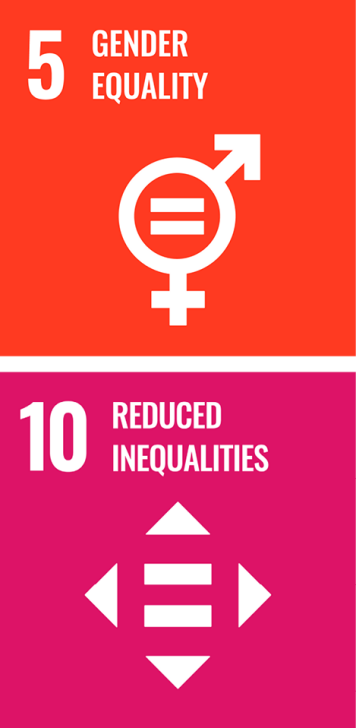
Since 1 April 2023, an anonymous reporting form has been available to ETH members who have experienced or witnessed inappropriate behaviour at the university. The online form is another way in which staff and students can report anyone who has overstepped boundaries. This helps the university identify where it needs to be more active. However, the online form does not automatically trigger a process to clarify the complaint. Under Swiss legislation, this is only possible if the complainant is willing to disclose their identity to the person alleged to have behaved inappropriately.
Highly qualified and motivated staff are the key to excellence in research and teaching. Personnel development therefore plays a central role at ETH Zurich. The university supports the personal and professional development of its employees with a diverse range of offerings to ensure they maintain a high level of performance and continue to develop their skills over the course of their entire career.
Collaborative learning environment for all ETH staff
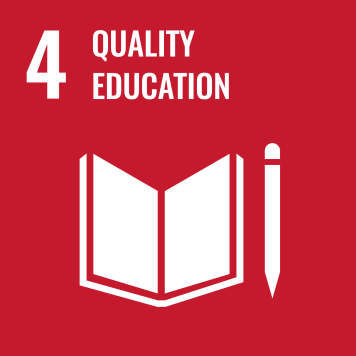
Continuous acquisition of knowledge and ongoing personal development are crucial for ensuring we are ready to meet future demands. The Lifelong Learning Hub (L3H) creates a space in which all ETH employees have flexible access to a broad range of learning content – such as workshops, online courses and podcasts – at a time and place that suits them. The predefined learning paths contain suggestions for "learning nuggets", geared to the user’s current career stage and work role. In terms of content, the focus is on ETH Zurich’s social and leadership competencies so as to ensure they can be embedded more firmly and developed to the full.
Productive collaboration between all staff
ETH Zurich identifies and analyses the needs of its employees so as to ensure their demands are met when developing the working environment of the future. Flexible forms of working present significant opportunities and require openness and creativity if they are to be used to find positive solutions for individuals and teams. Resourcefulness, empowerment and responsibility pave the way for granting people the opportunity to make use of these freedoms.
Flexible working at ETH Zurich
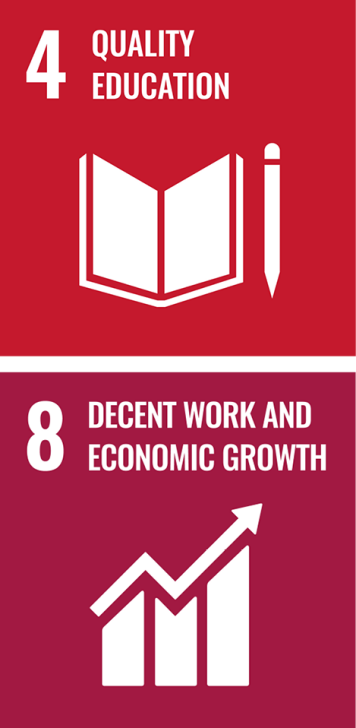
The COVID pandemic has forever changed the way we work at the university. A survey of all ETH members about the new flexible forms of working has shown that the hybrid model is the most popular. Communication and team spirit were felt to be stronger when working on site. By contrast, working from home has the advantage of eliminating the need for a commute and offers greater autonomy. One of the conclusions from the survey is that working from home should be supported more strongly in future. ETH-wide regulation on hybrid working is not feasible for everyone, however, due to the different circumstances of some employees (such as administrative and scientific staff).
ETH is an important vocational hub
ETH’s vocational training plays an important part in the Swiss dual educational system by providing young people and adults with theoretical and practical experience in 15 different occupations. ETH Zurich has developed a new vocational training strategy in order to ensure it remains an attractive employer for vocational training and is equipped to respond rapidly to the changing demands of the future labour market.
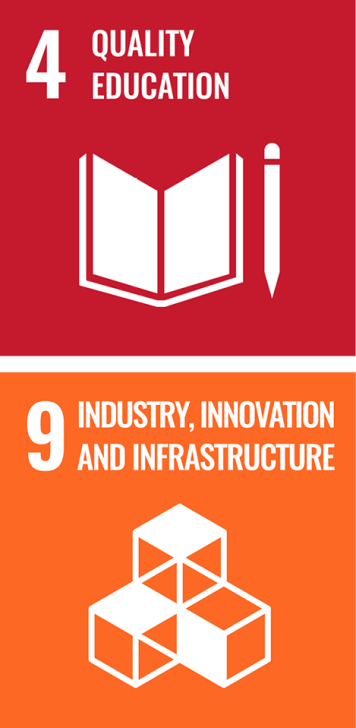
For his final project, Jingo Bozzini, an electronics apprentice at ETH Zurich, produced a test device that will save physicists a lot of time in developing a novel microscope. “Especially in experimental physics, it’s important that we have experts who can solve technical problems and implement things effectively,” explains Yves Acremann from the Solid State Physics research group. Close collaboration between researchers and apprentices is a hallmark of vocational training at ETH Zurich.
Diversity
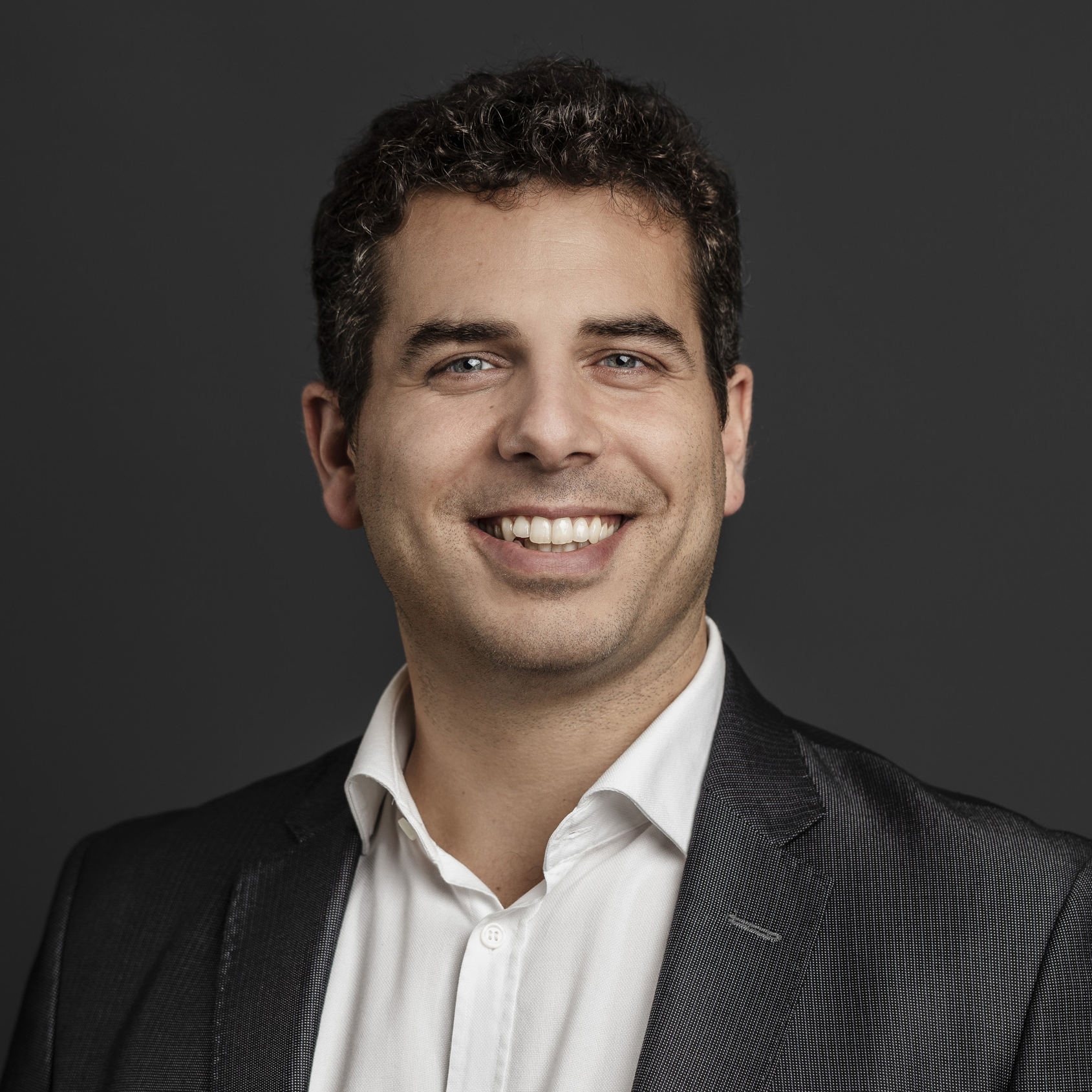
“The E-Learning courses offer our staff opportunities to strengthen their social and leadership competences in the area of ‘Living inclusivity’.”Giovanni Sansavini, Professor for Reliability and Risk Engineering
Unconscious bias can lead to people being treated unfairly or discriminated against. The e-learning "Unconscious Bias" tutorial is designed for all ETH members. It explains how to become more aware of this bias and provides an insight into the scope and depth of its unintended consequences.

ALEA Award for exemplary leadership at ETH Zurich

The Art of Leadership Award (ALEA) is presented in recognition of leaders who facilitate modern and innovative working conditions and who actively encourage and support the reconciliation of work, family and part-time commitments. Leaders are nominated by their staff.
2023 ALEA Award

Winner:
The winner of the 2023 award is Thomas Meierhans. As manager of the metal workshop in the Department of Civil, Environmental and Geomatic Engineering, he is in charge of around seven technical staff and responsible for processing customer orders from research. His team appreciate the importance their supervisor places on ensuring all staff are able to fulfil their potential and be happy and committed in their work.

Diversity Award for the promotion of diversity and inclusion at ETH Zurich

Every year, the Association of Scientific Staff at ETH (AVETH), together with ETH Diversity, presents the Diversity Award. It honours the achievements of organisations or groups that support underrepresented groups in the ETH community and individuals who are actively committed to the principles of diversity and inclusion at ETH Zurich.
2023 Diversity Award
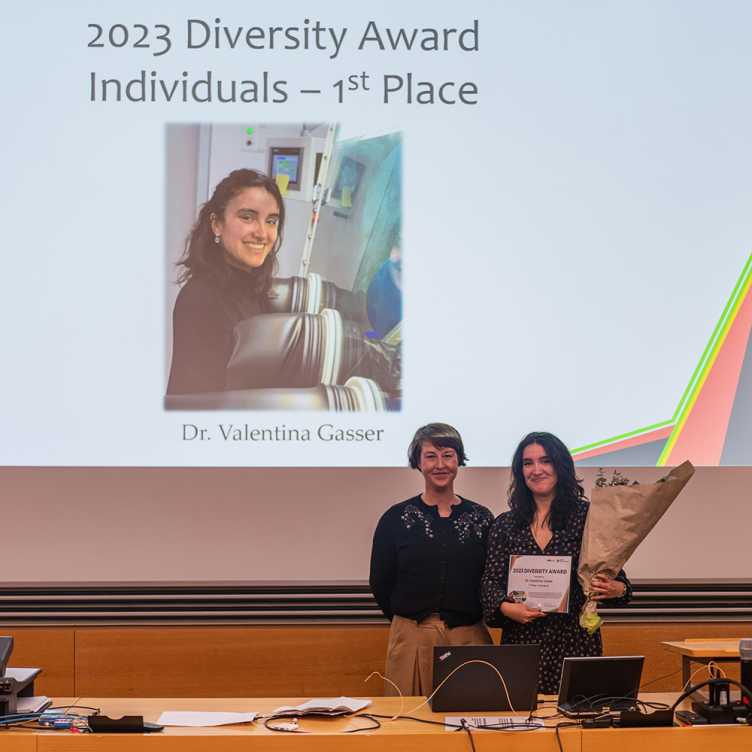
Winner of the Diversity Award, Individuals category:
Valentina Gasser, a former doctoral student in chemistry, has fought for equal opportunities and against discrimination, not only in her role as Vice President of the Society of Women in Natural Sciences (WiNS) but also through many other initiatives.

Winner of the Diversity Award,
Group/Organisation category:
Raising visibility externally and networking internally within the ETH community are significant concerns of the LGBTQIA+ community. Hochschul-Pride Zürich (HoPZ) addresses both these areas and has organised numerous events by and for the queer community.

New professorships
Following an application by ETH President Joël Mesot, the ETH Board appointed 31 new professors and promoted 19 professors over the course of 2023. It also awarded the title of professor 11 times and the title "Professor of Practice" once. During the year, 22 professors left the university.

New appointments (left to right): Professor Bernd Bickel, Dr Cindy De Jonge, Dr Caroline Dorn, Dr Allard Duursma, Dr Alexander Harms, Professor Mikaela Iacobelli, Dr Puneet Anantha Murthy, Dr Natalia Pikor; Promotions: Professor Paolo Arosio, Professor Katrien De Bock, Professor Andreas Fichtner, Professor Petra Schmid, Professor Hans Jakob Wörner, Professor Ce Zhang; Titular professors: Dr Corsin Battaglia, Dr Dorina Opris, Dr Stephan Pfister, Dr Vincenzo Picotti, Dr Barbara Solenthaler.

New appointments (left to right): Dr Elsa Abreu, Dr Hedan Bai, Dr Nina Cabezas Wallscheid, Professor Colette L. Heald, Professor Martina Rau, Professor Johanna Ziegel, Dr Thomas H. Zurbuchen; Promotions: Professor Torbjörn Netland, Professor Jeremy Richardson; Titular professors: Dr Johannes Lengler, Dr Cristina Müller.

New appointments (left to right): Professor Morteza Aramesh, Dr Amy E. Fraley, Professor Mark Fuge, Professor Eva Heinen, Michalis Kokologiannakis, Dr Xiaohua Qin, Martina Voser, Dr Basile Isidore Martin Wicky; Promotions: Professor Elliott Ash, Professor Hubert Pausch, Professor Sascha Patrick Quanz, Professor Rico Zenklusen; Professor of Practice: Professor Stefan Kurz.
For the first time in the history of ETH Zurich,
more women than men were appointed professors.
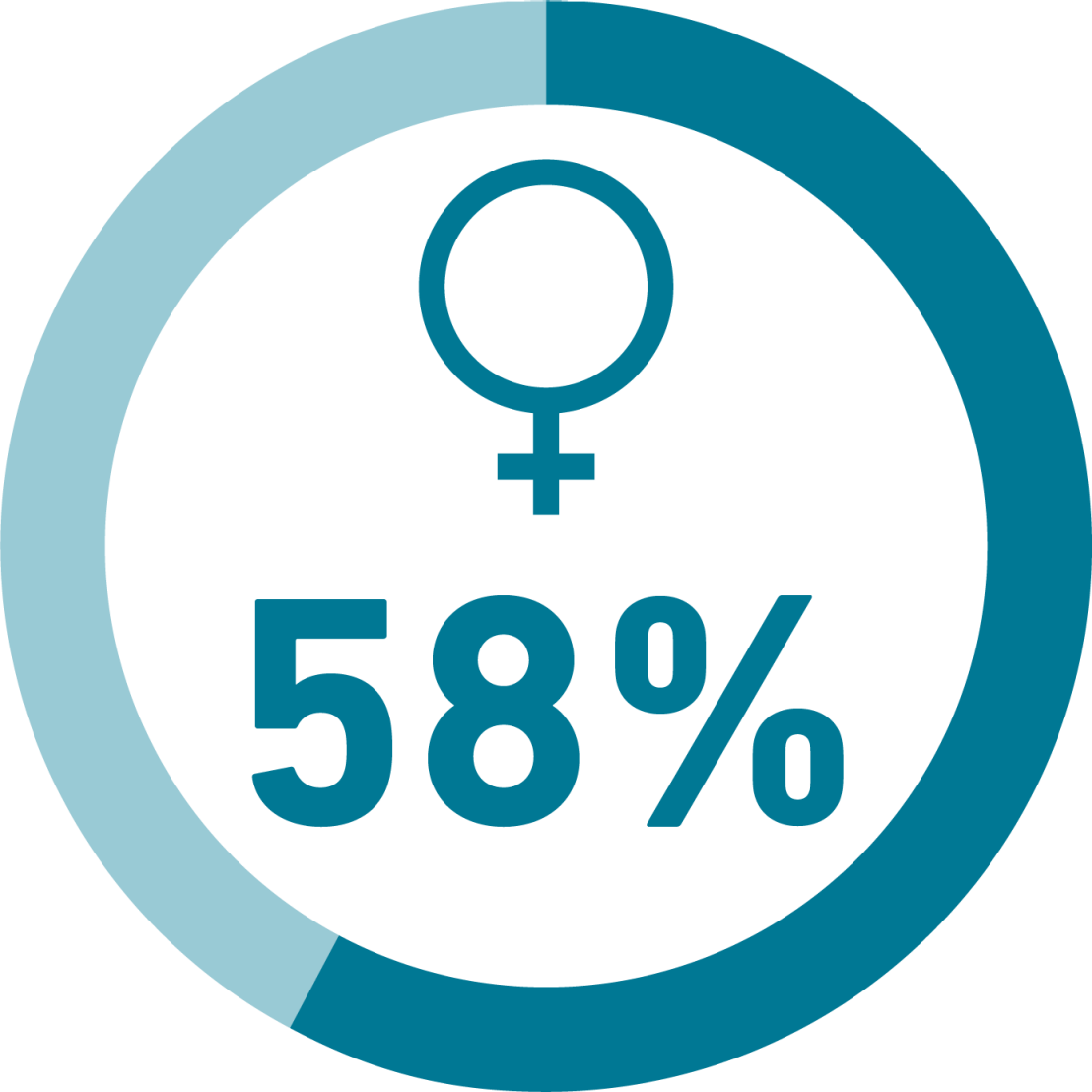
Diversity is one of ETH Zurich’s success factors. Promoting women is therefore a top priority at professor level and in new appointments. To sustain this percentage rise in future, the university has set itself a target of 40 percent females for new professorships. This target was exceeded in 2023: out of 31 in total, 18 new appointments were female professors (58 percent, compared with 48 percent in the previous year).
Staff by function and area
ETH Zurich had a total of 10,688.5 staff when calculating the average full-time equivalent across 2023, which was an increase of 1% compared with 2022. Some 36.4% of those were female and 58.4% were international. Counting full-time equivalent staff at the end of the year (31 December 2023) results in 10,879.3 staff. The tables show the detailed staff statistics according to function and area.
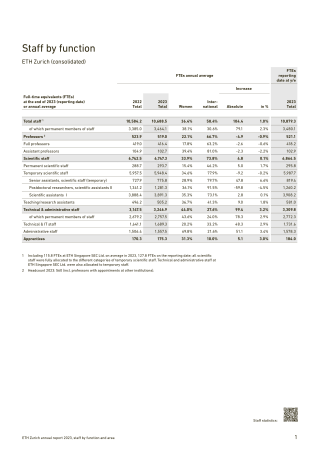
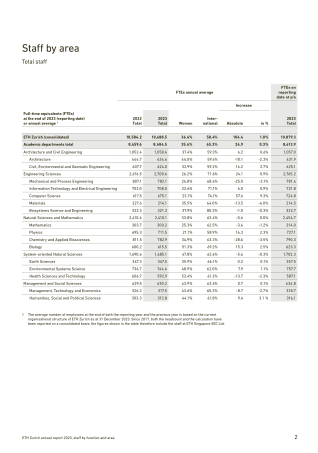
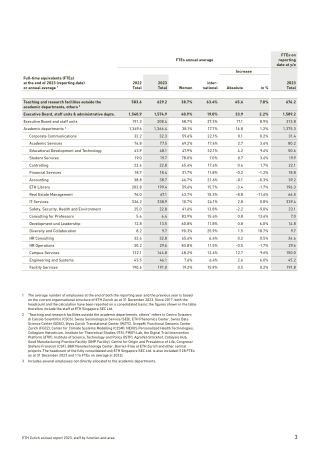
The Annual Report is produced in German and translated into English. Only the German version is binding.
© ETH Zurich, April 2024
